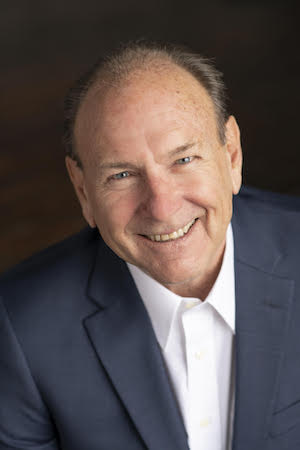Schuetz: Why The Massachusetts Gaming Commission Matters
The online operators are making a big mistake if they think they can sneak one past the MGC
9 min

“Know who you are dealing with. Do not offend the wrong person.”
— American author Robert Greene
The sports betting operators’ decision to boycott the original Massachusetts Gaming Commission’s roundtable on bet limiting was not a flash of brilliance. The fact that the operators thought this would be interpreted as anything other than a collective show of disrespect demonstrates an incredible lack of understanding of what it means to be operating in a traditional regulated gaming space.

The operators’ rather cavalier, seemingly scripted and rehearsed responses during the second roundtable, suggesting “there is nothing to see here,” certainly did not close the book on the issue. To think otherwise would indicate a high degree of misunderstanding of the MGC’s modus operandi.
The question of “What were the operators thinking?” was easily answered, because it is obvious they were not. A quote often incorrectly attributed to Einstein is that the only thing more dangerous than arrogance is ignorance, which is probably appropriate to this group of people for thinking they could play the MGC as fools. This all was silly because it was purely an unforced and unnecessary error.
Best-selling author Donald Miller, CEO of StoryBrand, argues that in the age of information, ignorance is a choice. I will make the same point to online sports betting operators if they think the Massachusetts Gaming Commission is an entity that can be trifled with.
The steady hand of the MGC
The MGC has been around much longer than the U.S. online sports betting industry, and the online folks should have done more research to understand the MGC’s doggedness in getting to the bottom of things. This is not a group that was quickly assembled in a rush to get sports betting up and running in a jurisdiction for some upcoming sporting season. That is not the MGC. These regulators had a history in gaming regulation long before the repeal of PASPA. And of great importance is that this history is one in which they have been thrown into the cauldron on several occasions and, in each instance, became tempered by the experience.
Massachusetts history has worked to develop a reputation of being diligent, thorough, and nobody’s fool as a regulator. And if you don’t believe me, ask Steve Wynn, a man who, before his trainwreck with the MGC, was considered by many industry observers to have been inoculated from suffering too much pain from regulators. Mr. Wynn was more of a subject of fandom for most regulators than one to be scrutinized for inappropriate conduct.
In short, the MGC has been thrown into some pretty dramatic situations in its history. It has made some material mistakes and seemingly has learned from those mistakes. I would suggest that this is growth and maturity.
The MGC came about with the passage of the Expanded Gaming Act in 2011. The goal was to raise employment, investment, revenue to the Commonwealth, and similar good stuff. The model selected was one allowing just three participants (we can ignore that the act also allowed for a small slot parlor), and it said the operators to be chosen needed to build destination resorts. In short, Massachusetts wanted excellent facilities without having casinos dominating the landscape.
This also implied that the Commonwealth was allowing a limited supply of operators, thereby making it a desired entry target for the large, branded gaming firms. When supply is restricted in a market, profits trend up from what would be found in a more competitive marketplace. This goal was successful, attracting enormous interest from many of the major players in the U.S. and tribal gaming environment.
Another aspect of the Expanded Gaming Act was that it could have been titled “The Massachusetts Full-Employment Act for Lawyers.” It would be safe to conclude that this was a true gold rush for many in the legal profession, and much of the energy of these lawyers was released in lawsuits in which essentially everyone sued everyone else.
In the early days …
I plan to present just the Cliffs Notes version of the evolution and growth of the MGC, for it is a very long and complicated story. If you are interested in getting immersed in some key parts of it, I have two reading recommendations:
- There is a fantastic article by a skilled writer named Mike Damiano in Boston Magazine entitled “How Massachusetts Went All in on Steve Wynn.” It is 14 pages long.
- Another insightful read is “An Investigative Report Regarding Ongoing Suitability of Wynn MA, LLC,“ published by the MGC. It is very long, at 209 pages.
The process of selecting the winners for the three sites was a task assigned to the MGC. Its chairman, Steve Crosby, was appointed by then-Gov. Deval Patrick, and it was a choice that most within the community applauded. That changed through time, however.
As the rest of the commission was being assembled, the operators quickly gathered large contingents of ex-politicos, lobbyists, and other assorted folks to help the commission understand why their project was excellent, and all the others were not so much. This guaranteed that the process would be high-profile and newsworthy — with everybody watching.
Concurrently, the MGC began conducting background investigations on the applicant companies as part of its efforts to ensure that the Commonwealth would be served by people and companies who demonstrated a high degree of character, honesty, and integrity and whose backgrounds were free of inappropriate actions or associations. And this effort immediately caught the attention of the gaming industry and beyond.
According to the Damiano account, one of the applicants for the slot license was excused from the process for shady financial dealings. More significantly, Caesars was considered unacceptable because of a suggested association with an organized crime figure. This was a serious accusation because Caesars was already licensed in multiple jurisdictions. Caesars then sued Chairman Cosby and Karen Wells, the director of the commission’s Investigations and Enforcement Bureau.
Caesars lost its suit and the appeal, but this was just the start of what became a tendency for everybody to use the courts for any and all decisions that did not please them.
It is also important to note, concerning Karen Wells, that her efforts found things that had been mainly undiscovered by the many agencies that had investigated Caesars prior to the Massachusetts investigation. People who are familiar with Ms. Wells’ efforts at the commission speak glowingly of her competence, character, honesty, and integrity.
A pyrrhic Wynn
As the process continued, a perception was being shaped that the Wynn proposal was getting preferential treatment. A potential problem with a bad actor involved with the Wynn site did not garner the scrutiny and response that Caesars’ issue did. There were also rumblings about inappropriate contacts in Macau on the part of Wynn’s interests. A compounding event occurred when it was discovered that Chairman Crosby had an apparent conflict of interest with one of the landowners for the Wynn site, who would benefit if Wynn were awarded the license.
This led to the chair recusing from the selection process and the commission developing a most curious method to ensure that the potential bad guy on the land deal would not benefit from the transaction via a pricing modification.
On Sept. 16, 2014, with Chairman Crosby recusing, the commission voted 3-1 to accept the Wynn proposal. This was followed by many lawsuits being filed, most driven by the belief that Crosby and the commission had shown partiality in determining the winner.
This led to a period in the Commonwealth where the commission, the pro-Wynn actors, and others worked to talk through the complaints, with the goal being to save the Wynn selection. That worked until Jan. 26, 2018, when The Wall Street Journal published an extensive story on a pattern of sexual misconduct by Steve Wynn, chairman and CEO of Wynn Resorts.
The article was entitled “Dozens of People Recount Pattern of Sexual Misconduct by Las Vegas Mogul Steve Wynn.” What is essential to understand about this article was that the byline was of four tremendously respected and serious journalists, including a Pulitzer Prize winner.
The seriousness of the allegations was demonstrated the next day, Jan. 27, 2018, when Mr. Wynn resigned as the finance chairman of the Republican National Committee. On Jan. 31, the Institute for Vision Research at the University of Iowa announced it would no longer allow Mr. Wynn’s name to be associated with the institute. On Feb. 1, 2018, the University of Pennsylvania removed his name from an outdoor plaza and a scholarship fund and revoked his honorary degree. On Feb. 6, Mr. Wynn resigned as chairman and CEO of Wynn Resorts. On March 22, 2018, he no longer owned any shares in the company. In April, Wynn Resorts proposed removing the Wynn name from its Massachusetts casino (changing it to Encore).
In addition, this provided a fresh impetus for everybody to begin suing everybody again.
Resignation follows resignation
One observation that should not be missed here is that Mr. Wynn worked in regulated gambling for many, many years. In Nevada, they prided themselves on claiming the regulatory assets to be the “gold standard.” It does seem rather curious that a few reporters (albeit extremely competent reporters) from out of town came to understand much more about Mr. Wynn than hundreds of gaming agents ever found in decades. This does make out that rah-rah nonsense about the competence of the Nevada Gaming Control Board and all of the “gold standard” silliness to be just that — silliness.
When it became clear to most on the planet that Steve Wynn and the Nevada Gaming Control Board had feet of clay, it was a fait accompli that Chairman Crosby had to resign. This took place on Sept. 26. Crosby’s Churchillian approach of “if you’re going through hell, keep going” finally ran out. He checked out of the game when his prior support for Mr. Wynn was no longer defensible.
When the Wall Street Journal story broke, the handwriting was on the wall regarding Mr. Wynn, demonstrated by the speed at which he separated himself from the company and other relationships and how the rest of the world no longer wanted to be associated with his name. When this story broke, Mr. Wynn’s background investigation was still open in Massachusetts, and the WSJ story indicated that important details revealed in the story had not been revealed on his application with the MGC. Given the severe nature of these details, the smartest thing Mr. Wynn could do was withdraw from the process and liquidate his holdings while they still maintained value.
I am very much of the impression that because of the Massachusetts project and the notion that his application was live, he had no other choice — he could walk away with some money or be thrown out. I also very much believe that the Nevada Gaming Control Board would have hemmed and hawed, thrown out some fines, and maybe created a penalty box of sorts for him to occupy for a bit, but he would not have been banished from operating in that state.
The women took him down
As an aside, there is this fascinating irony about all of this: For credible allegations that he had been beyond inappropriate with women, Mr. Wynn was brought down by powerful women. The reporters who created the Wall Street Journal product were predominantly women and led by women. The investigator for the MGC, whose work and instincts were so critical to navigating the commissioners through all of this, was also a woman.
Several other pieces of Wynn Resorts needed to be changed. It seems that when the chairman and CEO of a company generate sexual harassment complaints, and these complaints come to the attention of other important people in the organization, those complaints need to be investigated. This did not happen, and, as a result, many of these people also left the company. Also, the board of directors was reconstituted.
The point of this discourse is to demonstrate that the Massachusetts Gaming Commission has a legacy of being subjected to incredible pressure from the legal, political, and community environments. It also has a legacy of being tested and challenged by, if not the best, at least the toughest.
The commissioners learned the importance of transparency by having experienced a chairman who forgot it. They learned the importance of hard work and integrity by creating a top-drawer and unimpeachable investigative product. They also learned that a regulatory entity’s most important client is the jurisdiction it serves — not the operators, politicians, press, or other special interests.
The point I am making to the online sports betting operators now dealing with this commission is that it is probably time to grow up, for you are dealing with real adults trying to do their best for Massachusetts. My guess is they will be the U.S. thought leader for regulatory agencies addressing sports wagering, helping to shape the industry’s future character because they are working so hard to understand it. You cannot scare this group, intimidate them, sue them into oblivion, or go around them. This has been tried by the best, and he failed.
Respect who you are dealing with, and deal with them.
—
Richard Schuetz entered the gaming industry working nights as a blackjack and dice dealer while attending college and has since served in many capacities within the industry, including operations, finance, and marketing. He has held senior executive positions up to and including CEO in jurisdictions across the United States, including the gaming markets of Las Vegas, Atlantic City, Reno/Tahoe, Laughlin, Minnesota, Mississippi, and Louisiana. In addition, he has consulted and taught around the globe and served as a member of the California Gambling Control Commission and executive director of the Bermuda Casino Gaming Commission. He also publishes extensively on gaming, gaming regulation, diversity, and gaming history. Schuetz is the CEO American Bettors’ Voice, a non-profit organization dedicated to giving sports bettors a seat at the table.






